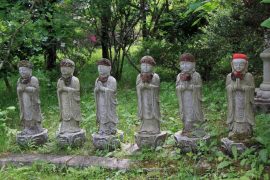 Jhumpa Lahiri made a stunning entry on the international literary scene. Her debut book of short-stories, Interpreter of Maladies won the Pulitzer Prize for Literature in 2000 and her 2003 novel The Namesake, was adapted into a film. Her follow-up book of short stories Unaccustomed Earth, released in 2008, shot straight to the New York Times Best Seller list. Now her latest book, The Lowland, has been included on the 2013 Man Booker shortlist released last week. Not a bad pedigree.
Jhumpa Lahiri made a stunning entry on the international literary scene. Her debut book of short-stories, Interpreter of Maladies won the Pulitzer Prize for Literature in 2000 and her 2003 novel The Namesake, was adapted into a film. Her follow-up book of short stories Unaccustomed Earth, released in 2008, shot straight to the New York Times Best Seller list. Now her latest book, The Lowland, has been included on the 2013 Man Booker shortlist released last week. Not a bad pedigree.
The Lowland is about Subhash and Udayan two Bengali brothers growing up in post-World War 2 Calcutta. Udayan is the intrepid one, the brave one “blind to self-constraints, like an animal incapable of perceiving certain colours.” Sabhash was the cautious one. The one who “waited for chaotic games to end, for shouts to subside”, whose favourite moments were “when he was alone, or felt alone.’’
Although the character of each slightly baffled the other, they grow up more like twins, virtually inseparable. Both curious and academic, their idea of excitement is to create a small radio from spare parts, their private portal to the cataclysmic events unfolding around them through the 1960s and 1970s. Then, at University, while Subhash is devoted only to his studies physically frightened of the brutality that is unfolding across the city, Udayan becomes an active participant in the Naxalite movement, the Maoist-based insurgency that grew out of the brutal response to the peasant rebellion in the poverty-ridden Naxalbari region of Darjeeling.
When Subhash moves to America to further his studies he is already culturally alienated from his brother. He lives on the fringe of American university society and his background in Calcutta; not quite fully part of either. His first return home is to mourn the death of Udayan, killed in controversial circumstances. At his parents’ home, his home, he meets Gauri, the independently-minded student Udayan had defied his parents and tradition to marry. In an uneasy alliance formed by their affection for Udayan, Subhash returns to America with Gauri as his wife.
This is where what is effectively the second part of the novel begins with a noticeable change of pace. Despite the subterfuge about Gauri’s pregnancy, and the continuing presence of Udayan between them, Subhash becomes a devoted father to Bela and continues as an effective if uncontroversial academic. When Gauri makes her shock decision to leave, cutting all ties, he is the one who battles his own emotional security blanket to fight for what he believes in.
Perhaps in view of Lahiri’s literary heritage, it is inevitable that there is occasionally the feel of the expanded short-story about certain sections of the plot, admittedly beautifully crafted as you’d expect from Lahiri. And whilst the novel holds together, the questions about Gauri’s character are never quite fully resolved leaving her sadly shallow rather than intriguing or sympathetic. Whilst overall I enjoyed The Lowland, and silently cheered at Subhash’s simple happiness and over Gauri’s come-uppance, I wasn’t completely convinced by either.
There has been an interesting little sub-plot playing out in connection with Lahiri’s short-listing for the Booker relating essentially to nurture over nature. The Booker is not open to Americans and Lahiri was born in England of Indian parents but left when she was ten and subsequently grew up in America. She has been quoted on one occasional as saying that she “felt American rather than English.” President Obama appointed her as a Member of his Committee on the Arts and Humanities. The same argument has been raised in the cases of NoViolet Bulawayo, shortlisted for We Need New Names, who was born in Zimbabwe but has lived many years in America, and Ruth Ozeki, the Canadian-American author of A Tale for the Time Being, who has a Japanese mother.
Seems to me there are plenty of competitions open to American authors and to open the Booker Prize to non-Commonwealth born authors would result in a deluge that will, inevitably, reduce the likelihood of some of the authors from emerging countries like Zimbabwe and Nigeria getting the boost they deserve by being showcased as part of the Booker.

Comments are closed.